Graduating seniors blame USC for ruining end of college with ‘military’ crackdown on pro-Palestine campus protests
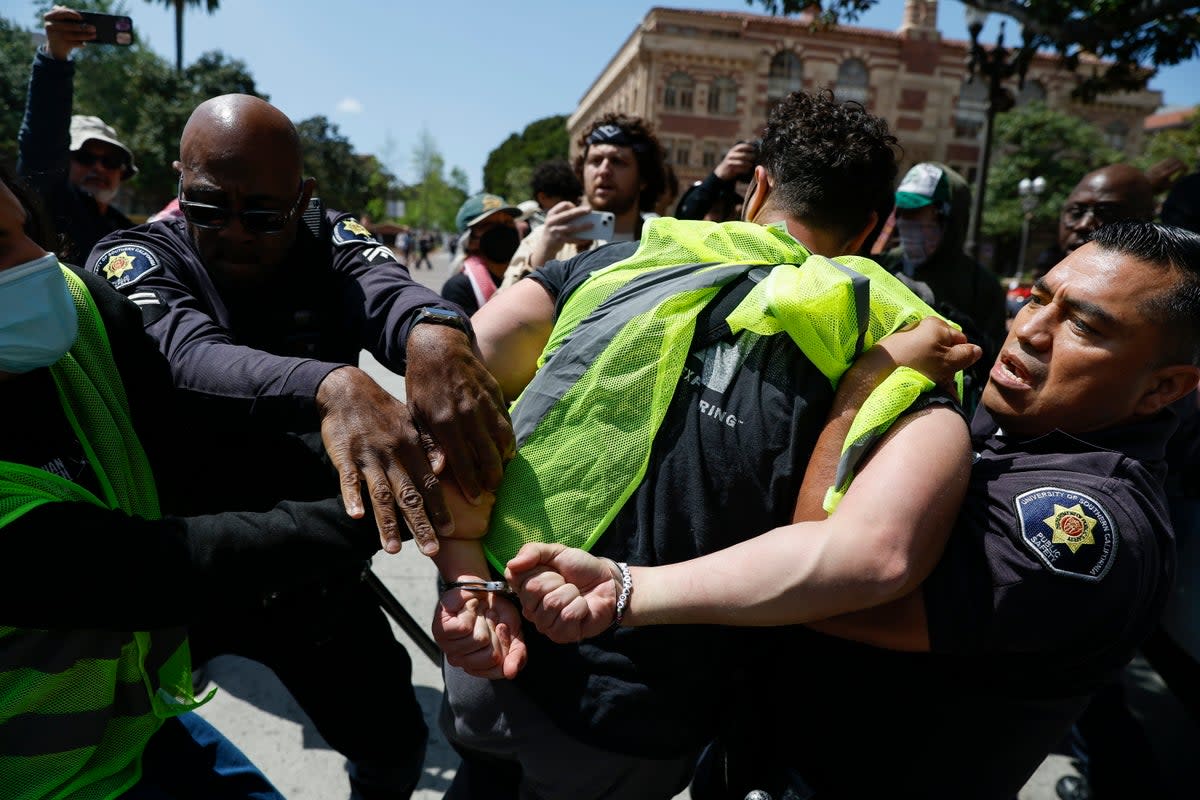
Senior students in Los Angeles say they are now “reconsidering what it means to graduate from USC” after being “violated” by heavy-handed crackdowns against on-campus protests over the Israel-Gaza war this week.
With just two weeks to go before their graduation ceremony on 10 May, some said the celebratory atmosphere had vanished and been replaced with one of “almost grief”. Others accused the institution of creating an environment of “us versus them” amongst Jewish and Muslim students.
On Wednesday, like many universities across the country, USC – where tuition can cost up to $95,000 annually – saw demonstrations on campus descend into violence, with armed police arriving to disperse students with rubber bullets and riot gear. Similar shocking scenes played out in states including Georgia, where police used tasers on restrained students and shot pepperballs at demonstrators at Emory University.
The widespread unrest follows arrests of students at Columbia University in New York during weeks-long protests. More than 100 people were arrested at Columbia alone in connection to the protest encampments which are asking the school to divest financial ties to Israel over the war in Gaza. Protests in unversities in other states, including USC and the University of Texas in Austin, have espoused similar sentiments.
However, less than 24 hours after Wednesday’s demonstrations there were all-but no signs of protest activity on the Californian campus at all. The only indications that action had taken place were chalk messages reading “USC, divest from death,” and “no more money for USC’s crimes”.
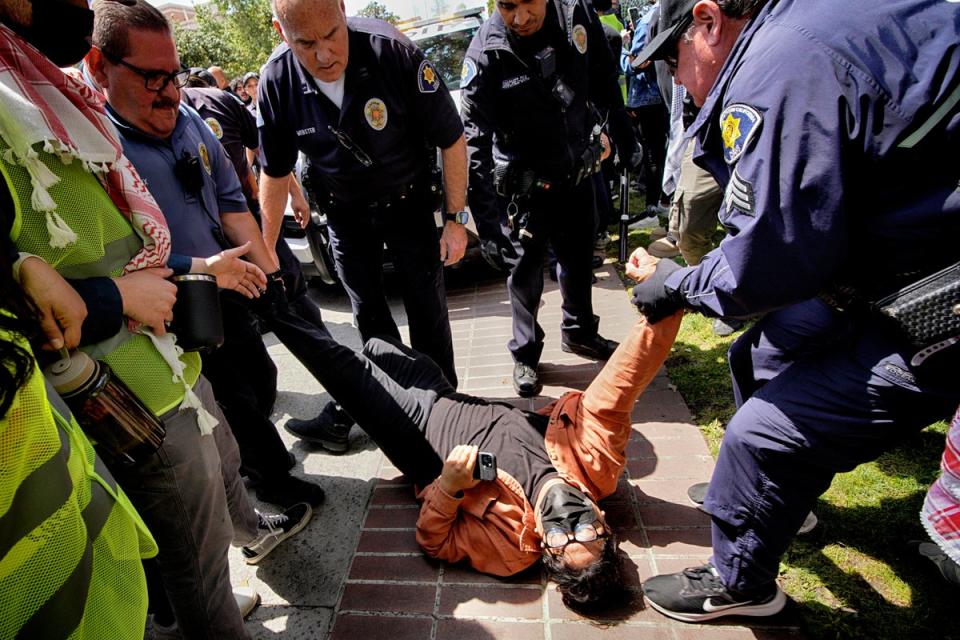
Alan, a USC senior and due to graduate next month, said that in the aftermath of the protests the campus had felt “military-like”. Student IDs were being checked at all gates onto campus on Thursday.
“The only time you ever had to check in with your ID to get into campus was at night or on weekends,” he told The Independent. “It’s kind of saying that USC is not a place of open ideas… because obviously, we’re keeping the outside community out now.
“It’s only open to students who pay 90k to go here, like myself, and yet, if we even express our ideas, our beliefs, we are going to be reprimanded as we saw yesterday. There will be consequences to me expressing what I believe and that is really hurtful given that it’s a university.”
The 22-year-old, who was present during the demonstrations on Wednesday, said tensions had risen suddenly after members of the USC Department of Public Safety (DPS) had attempted to arrest an individual and put him in a car.
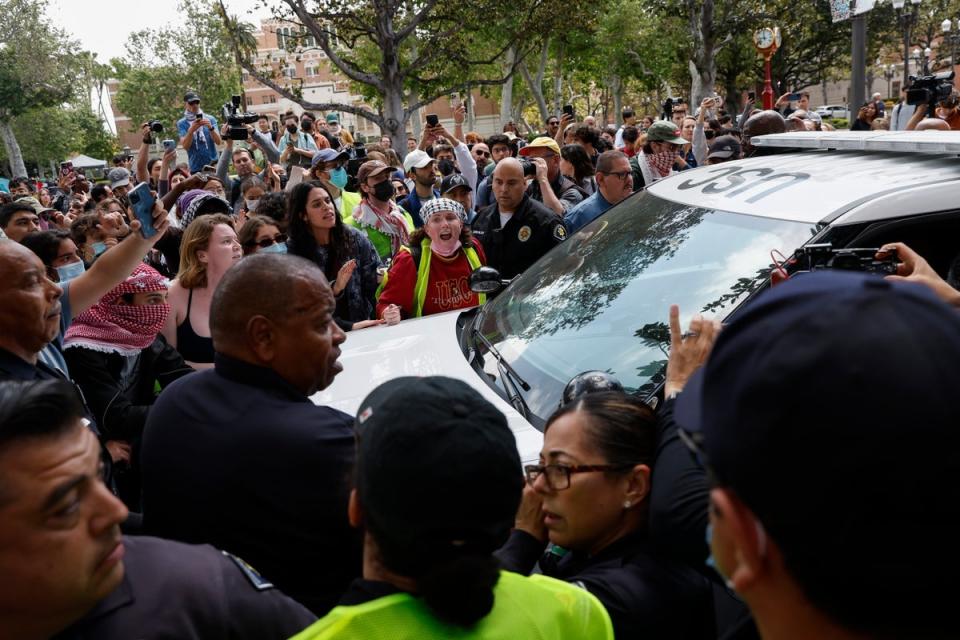
“The students blockaded the car and told them that they can arrest him and they’re not leaving until he’s out of the vehicle,” Alan told The Independent. “People, like they basically built a human chain arm around the car and they said we’re not leaving until you get him out of the car. It just got very tense.”
Video from the protests showed dozens of helmeted officers arriving on the scene and arguing with those gathered about the removal of tents. “It was just very hurtful to see the people who are supposed to protect us like DPS – whenever there’s an issue on campus we always call DPS because they’re our own staff,” Alan said. “And yet they were the ones hurting the student body.” Returning to campus the day after, he said, “feels wrong”.
“It’s not an atmosphere of celebration. It’s an atmosphere of grief in a way. I think people were just really reconsidering what it means to graduate from USC,” Alan told The Independent.
“I’m a graduating senior. This is my graduating class. And it feels wrong to even come back to campus or to even celebrate this final week like this.”
He added: “I will never have this week again… and it’s hurtful that this is how we’re going to leave. Like, I will always remember my last week of school knowing that USC violated us. USC did not stand for us.”
On Thursday USC suddenly announced that the main stage commencement ceremony would no longer be taking place on 10 May. The institution said the decision – described as “heartbreaking” by some of those due to graduate – was due to extra safety measures on campus making processing such a high volume of people difficult.
Prior to Thursday’s announcement, the lead up to the USC commencement ceremony in May had already been marred by controversy, after it was announced that the 2024 valedictorian, Asna Tabassum, would not be giving a speech at the event due to unspecified “safety concerns”.
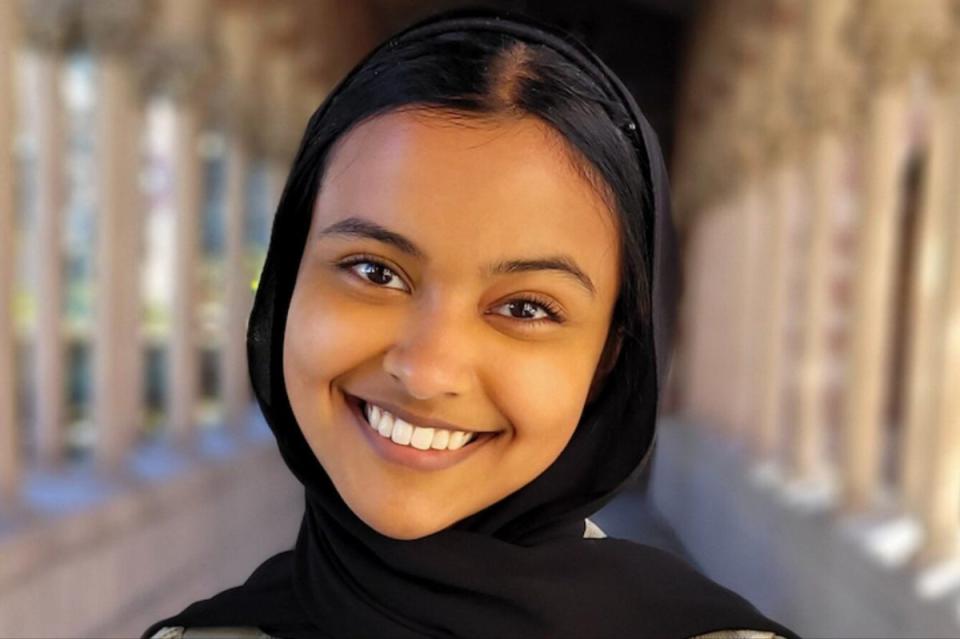
Ms Tabassum describes herself as a first-generation South Asian-American Muslim and includes a link to a pro-Palestinian website in her social media bio. Her critics have accused her of sharing anti-Israel views. In response she wrote: “I am not surprised by those who attempt to propagate hatred. I am surprised that my own university—my home for four years—has abandoned me.” She said she felt “profoundly disappointed” by USC’s decision, which did not refer to her political views. Advocacy groups CAIR Greater Los Angeles said the decision “empowers voices of hate” and violated the university’s obligation to protect its students.
However, despite claims by students, including Alan, that the protests on campus that have taken place since the attacks on Israel by Hamas on 7 October have been peaceful and not antisemitic, there are many Jewish students at USC who say their final weeks have been flooded with concern from their friends and families.
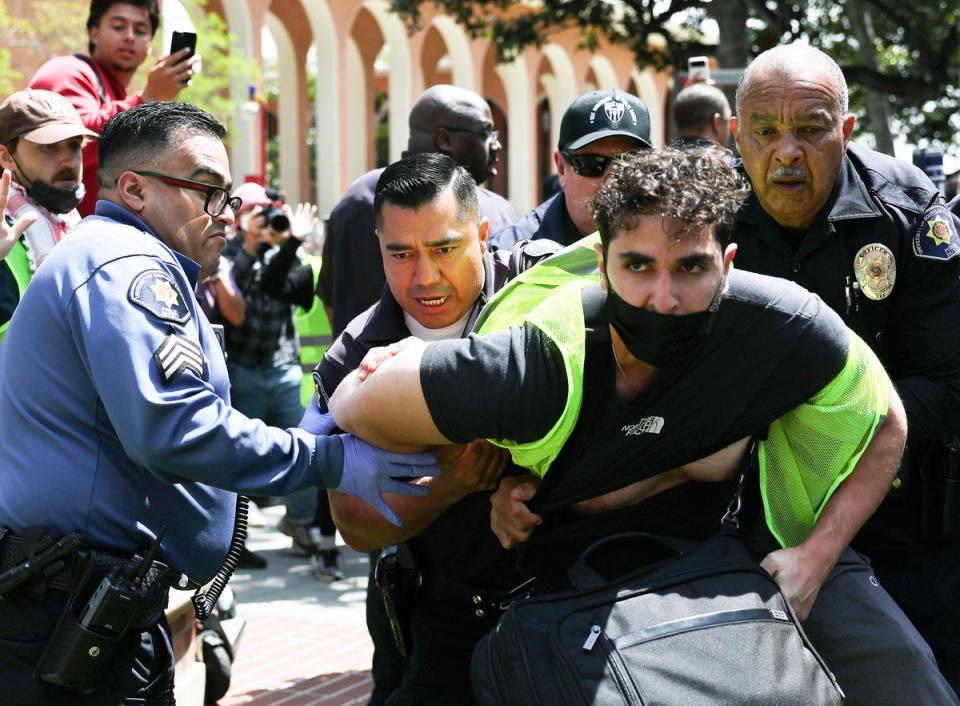
Senior student Melina Feradouni said the decision was “truly heartbreaking” and was “a mess that could have been avoided” by USC. Ms Feradouni, 22, told The Independent that she had been sitting in class for a review session ahead of her final assessments and had to leave because she was “so distracted” by the news.
“Unfortunately the lack of proper action by our university has led to a very special day being ruined. Our graduation has always been a day open to the public and I personally had about 15 loved ones expected to attend, but unfortunately that will no longer be possible,” she said.
“This was a mess that could’ve been avoided had the university taken proper action when picking the valedictorian ... The weeks leading up to this day was supposed to be exciting and fun but unfortunately it is now filled with dread. Us Jewish seniors graduating feel unwelcome and unprotected.”
Ms Feradouni, who describes herself as “a proud Jew”, said she stayed home on Wednesday “out of fear”.
“I’ve known I wanted to go to USC since I was 14, this is supposed to be a celebration for me and my family and it’s just become dreadful. Coming to campus has been exhausting,” she told The Independent.
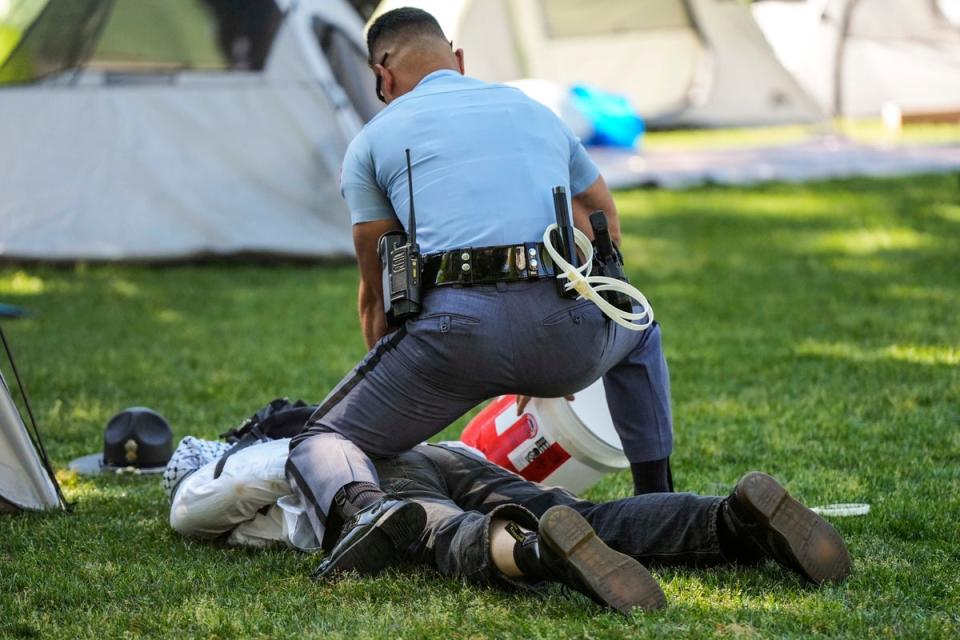
“Graduation has become friends and family calling me saying ‘are you ok? Do you need anything? Are you safe? … it’s not what I expected the weeks leading up to my graduation to be by any means.”
Ms Feradouni’s parents are Iranian-Jewish refugees who fled to the US decades ago. She said that both the protests and USC’s choice of valedictorian were displays of antisemitism.
“At the end of the day, the weeks leading up to graduation should be a happy time and it’s not at all… Graduation shouldn’t be a space for hate of any kind.”

